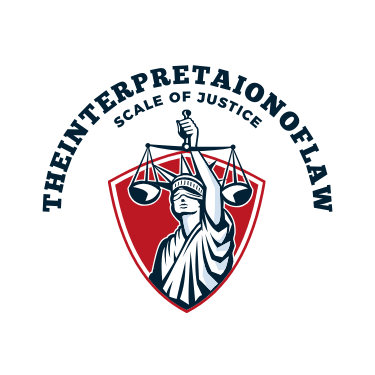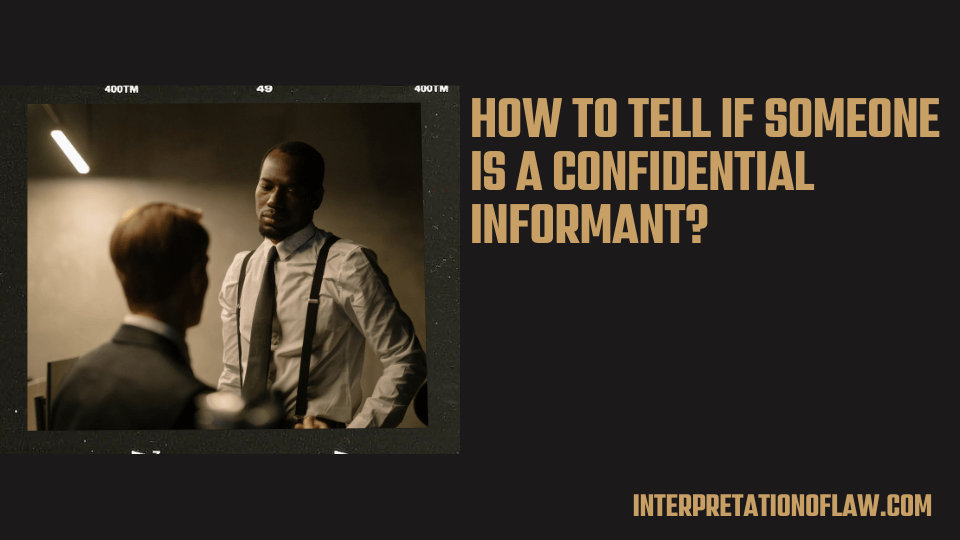Identifying whether someone is a confidential informant can be a sensitive process due to the legal and ethical considerations that underpin it. Here is a comprehensive guide on understanding what a confidential informant is, the signs that may indicate someone is working in this capacity, the rules they must follow, and how to become a confidential informant yourself if that is the route you intend to pursue.
What is a Confidential Informant?
A confidential informant (CI), also known as an informer or source, is someone who provides information about criminal activity to law enforcement under an agreement of confidentiality. CIs typically have first-person information about ongoing or past criminal activity and may assist law enforcement in gathering additional evidence, such as recording conversations, making controlled drug buys, or gaining access to targeted groups or individuals.
Signs of a Confidential Informant
Identifying a confidential informant can be challenging, as many CIs operate without revealing their role. However, several signs might indicate that someone is working with law enforcement, including:
-
- Sudden lifestyle changes: Affording expensive items or security measures seemingly beyond their means.
- Access to law enforcement: Discussing sensitive law enforcement techniques or having a close relationship with police.
- Inconsistent or inexplicable actions: Demonstrating sudden withdrawal from criminal activities or acting suspicious when investigations are underway.
- Regular contact with law enforcement: Frequently meeting with the police or conveying sensitive information.
- Involvement in multiple investigations: Providing information on various crimes, indicating a pattern of cooperation.
- Lack of criminal record: Having no prior convictions or arrests despite involvement in illegal activities.
- Frequently receiving leniency or reduced charges: Despite being involved in illegal activities, the individual receives light punishment or reduced charges, suggesting a deal with law enforcement.
- Unusual behavior during arrests: Reacting calmly or showing little concern during arrests and subsequent legal proceedings.
- Suspicious activity: Being seen in areas where illegal activities take place or having unexplained wealth.
- Inconsistencies in stories: Providing conflicting information or changing their story frequently, indicating possible deceit or cooperation with law enforcement.
Additional signs may also include:
- Avoidance of certain topics: Refusing to discuss certain people, places, or activities, especially those related to criminal behavior.
- Unexplained absences: Disappearing for periods of time without a valid explanation.
- Associations with known informants: Having close relationships with individuals who are known to be informants for law enforcement.
- Drug or alcohol abuse: Using substances excessively, which may indicate a means of coping with the stress of being an informant.
- Lack of trustworthiness: Demonstrating a lack of loyalty to criminal associates or frequently betraying their confidence.
- Frequent use of aliases: Using different names or identities in different situations, possibly to conceal their identity as an informant.
- Extreme caution and secrecy: Being overly cautious or secretive about their actions and interactions, potentially to avoid being discovered as an informant.
What are The Rules for Confidential Informants?
Confidential informants operate under strict guidelines to protect both their identities and the integrity of their information. Common rules for CIs include:
- Confidentiality agreement: An explicit understanding that any information provided by the CI is not to be disclosed to anyone outside of the law enforcement agency.
- Issuance of instructions: Directions on how to act or what information to seek are typically formally noted or recorded by law enforcement.
- Limits on criminal activity: CIs are often prohibited from engaging in specific forms of criminal activity, though exceptions may be made in controlled settings and under explicit instructions from law enforcement.
- Safety protocols: Precautions taken to ensure the safety of the CI, often including the use of pseudonyms and direct law enforcement supervision when undertaking investigative activities.
How To Tell if Someone is a Confidential Informant?
Unless you are directly involved in law enforcement, identifying whether someone is a confidential informant can be challenging and legally precarious. It’s important to respect the privacy and protection mechanisms under which confidential informants operate.
However, direct communication with the suspected individual, asking probing questions without accusing them, and observing their behavior and interactions might provide some clues.
How Can I Be a Confidential Informant?
Becoming a confidential informant is a complex process and should not be taken lightly. While requirements and procedures may vary by jurisdiction, a few general steps are involved in becoming a CI:
- Contact law enforcement: Express your willingness to cooperate and the information you can provide.
- Meet with law enforcement: Discuss the potential terms of a confidential informant agreement.
- Review and sign the agreement: With the assistance of an attorney if needed, to ensure you understand your rights and obligations.
- Undergo training: Depending on the nature of your work, you may be required to undergo training to protect your safety and the integrity of the information you provide.
Becoming a CI carries significant risks and responsibilities, so thoroughly consider the implications and seek legal advice before pursuing this avenue.
FAQs
How to tell if someone is a drug informant?
As mentioned earlier, identifying a confidential informant can be challenging and legally precarious. It’s important to respect the privacy and protection mechanisms under which CIs operate.
However, some signs that may indicate someone is working as a drug informant include sudden lifestyle changes, access to law enforcement, and regular contact with police.
These are not definitive indicators and should not be used to make accusations without concrete evidence. If you suspect someone of being a drug informant, it is best to consult with an attorney or law enforcement for guidance.
Can I become a confidential informant if I have a criminal record?
It depends on the jurisdiction and the nature of your criminal record. In some cases, certain offenses may disqualify an individual from becoming a CI. It’s essential to discuss your record with law enforcement and seek legal advice before pursuing this avenue.
What happens if a confidential informant’s identity is revealed?
Revealing the identity of a CI can have severe consequences, including endangering their safety and compromising ongoing investigations. In some cases, individuals may face criminal charges for exposing a confidential informant’s identity.
All parties involved in handling information from a CI must follow strict confidentiality protocols to ensure the safety and integrity of their work. So, it is crucial to respect the agreements made with law enforcement and keep the informant’s identity confidential.
Is informant a spy?
While there are some similarities in their roles, a confidential informant is not considered a spy. Spies often gather information for national security purposes and operate under different legal frameworks and protocols.
What is the boss of a spy called?
The boss or handler of a spy is typically referred to as their case officer. They oversee the operations and activities of the spy and provide guidance on their assignments.
What can a confidential informant not do?
Confidential informants are typically prohibited from engaging in certain criminal activities, but the specifics may vary depending on the circumstances and agreements made with law enforcement.
CIs should also adhere to any instructions given by law enforcement and maintain confidentiality regarding their role. So, it’s essential for both parties to establish clear boundaries and expectations to ensure the safety and success of their working relationship.
Conclusion
In conclusion, the identification and use of confidential informants play a crucial role in law enforcement. If you suspect someone is a confidential informant, it’s important to approach the situation with caution and respect for the individual and the complex legal and ethical considerations at hand. For individuals considering becoming a confidential informant, due diligence, legal advice, and thoughtful consideration of the implications are vital.
More Related Post:
How to get ankle monitor off legally? | What You Should Do
Resources:
- https://www.ojp.gov/ncjrs/virtual-library/abstracts/confidential-informant
- https://secure.in.gov/isp/files/Confidential-Informants.pdf

Carter Wilson is a licensed lawyer with over 10 years of experience in various legal fields. He is passionate about making law accessible to the general public and helping individuals navigate through complex legal matters.

